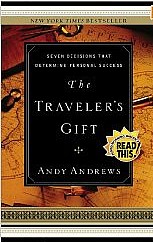Is history relevant in a 140-character world?
/Part 8 of my "How I found my snow path to Dingle" series In this edition I'm focusing on another question asked about historical novels: "How is this relevant in today's society?" Sharavogue takes place in the 1650s, far removed in both time and location to what most of us experience today. But it is based in fact, so an obvious answer is to refer to the quote attributed to philosopher George Santayana, "Those who cannot remember the past are condemned to repeat it." Or the same with similar wording attributed to Winston Churchill and several others -- all the way to Jesse Ventura. Then there is the ever-positive Kurt Vonnegut, who says "I've got news for Mr. Santayana: we're doomed to repeat the past no matter what. That's what it is to be alive.”
As one who loves history and historical fiction, I sometimes wonder why writers need bother with trying to prove history relevant. It is, because it is. History is fascinating and woven from the lives and experiences of everyone who lived before us. Most humans love a good story, no matter what century it comes from. When I read historical fiction I also love learning about what life was like at a different time, and what circumstances caused things to be that way, and why people made the choices they did. It always in some way informs my own life without the author having to draw direct connections.
 I recently read House Girl by Tara Conklin, which flips back and forth between pre-Civil War slavery and a present-day lawyer trying to attribute works of art to the slave girl. The whole story is about connecting past to present, and parts of it were quite good, but I found the historical portions by far the most interesting and well written, and the present-day portions sometimes feeling forced and distracting.
I recently read House Girl by Tara Conklin, which flips back and forth between pre-Civil War slavery and a present-day lawyer trying to attribute works of art to the slave girl. The whole story is about connecting past to present, and parts of it were quite good, but I found the historical portions by far the most interesting and well written, and the present-day portions sometimes feeling forced and distracting.
I also recently stumbled across The Traveler's Gift by Andy Andrews, a book someone had given my husband when he retired. It is basically a trip back in time to get seven philosophies for success, with the underlying message that each of us has a gift and the things we do have value and importance, whether we know it or not at the time. At one point we visit the Battle of Little Round Top where Col. Joshua Chamberlain's desperate last-minute charge is key to the Union victory there, which ultimately leads to the end of war, the end of slavery in America, and the growth of a superpower that is able to do good in the world. An oversimplification to be sure, but a strong message about relevance.
In my book, I chose to stay in the 1650s. While the relevancy is not mapped for readers as in the books I've just described, I think it derives from the characters themselves and the struggles and obstacles they work to overcome. One of my readers talked to me at length about the character Tempest Wingfield, who becomes a plantation master only because he inherited when his father died. She related strongly to his internal ragings against a life he never chose, and the sorrows he felt nonetheless for not being a better son, honoring and loving his father while he had the chance. Other readers related strongly to the pain of the poor choices Elvy Burke makes that lead her down more difficult pathways. As noted in an earlier post, Sharavogue itself (the plantation on Montserrat) is a character, passively supporting the plantation lifestyle in its own harsh existence.
Who has lost a loving parent and not felt deep regret? Who has not made poor choices in life and learned from them? And who has not witnessed injustices large or small and felt powerless to change them?
True relevance comes from the heart. But on a political level I must add that Oliver Cromwell (the bad guy in my book) remains today a relevant and controversial figure. I talked once with a British citizen who believed the commonwealth Cromwell established was the right and appropriate idea for his government, and the monarchy was irrelevant. Yet the Cromwell name is mostly associated with the 16th century Thomas who destroyed the Catholic monasteries, and the 17th century Oliver who slaughtered the Irish.
These stories and the jigsaw puzzle of factors that created them are impossible to deliver in a tweet or a Facebook post, and I worry about the lack of reading that could surely lead to the "forgetting" of history. (For example, I shudder when I hear women say they want to be stay-at-home moms, having lived through the time when women fought tooth-and-nail for the right to work and vote, and still struggle for equal pay.) But I take hope from something another writer once said to me: "People don't care about history until they realize they have one." And then it becomes all-important.



